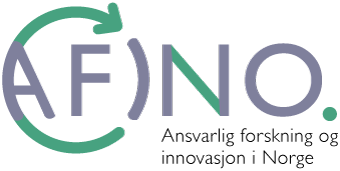RRI as a way to explore the different social, political and research temporalities
RRI as a way to explore the different social, political and research temporalities

Credit of the RRI questionnaire
Made by: Peter Fusdahl, PhD candidate at UiB/UiS
He participated at the 2023 AFINO Autumn School in Jondal, 18th-21st September 2023.
Application of RRI on a questionnaire to geriatric medicine researchers
My PhD is on geriatric medicine researchers, and how their research, especially research on the brain, is shaped and funded by public and political interests, funding and research priorities. Brain research is still a relatively immature and underfunded field, which leads to a discrepancy between the attention and advances in medical research making our bodies live longer, and brain research where it is still difficult to find and define relevant research questions with precision.
In that context, the most important dimension of RRI for me is the responsive dialogue between medical researchers, public interests and policy makers/political decision makers, and how this dialogue can take place so that brain research can be better grounded in a social and political reality, at the same time as highlighting the advances, potential progresses and ethical considerations that are at stake with this research. In that way, allowing for a responsiveness/feed-back loop between research, society and policy is key.
I have therefore mapped an RRI-structured questionnaire (see picture), aimed at geriatric medicine researchers, that encompass the dimensions of anticipation, responsiveness, inclusiveness and reflexivity, and that poses some of the following questions:
- Do policy makers and public decision makers have access to timely research insights from the researcher when the public calls for proposals are defined and prioritized?
- Are geriatric medicine researchers able to research what they believe is important for their discipline or are the public "calls for proposal" limiting this preferred research?
- Are geriatric medicine researchers aligning their researching to the public needs perceived by politicians and public decision makers?
- Is new research talent motivated and actually awarded public research grants to explore alternative paths to innovative results and solutions in geriatric medicine?
- Is fundraising knowledge and education available for geriatric medicine researchers?
